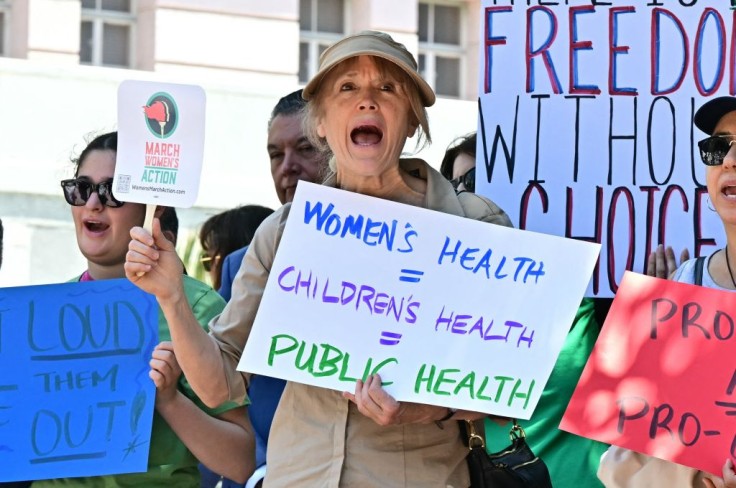
The ballot amendment for Arkansas' abortion rights has been rejected by state secretary John Thurston.
Thurston faced a wave of backlash coming from voters who initiated efforts to place a constitutional amendment on the state's November ballot.
The initiative, spearheaded by Arkansans for Limited Government, fell short due to missing paperwork required alongside submitted signatures.
Arkansas Abortion Rights Halted
In a letter addressed to the organization, Thurston, a Republican, emphasized that the group failed to provide statements detailing compliance with signature-collection regulations to paid canvassers, nor did they identify these canvassers by name.
This oversight affected 14,143 signatures, leaving the initiative short of the necessary threshold.
Responding to the decision, Rebecca Bobrow, a spokesperson for Arkansans for Limited Government, confirmed receipt of the letter and stated that their legal team was assessing the situation before determining their next course of action.
The organization had announced last Friday that it had gathered over 100,000 signatures from registered voters, surpassing the required 90,700 needed by the deadline.
Despite this apparent success, Thurston's rejection underscored the meticulous requirements involved in amending the Arkansas Constitution.
Arkansas is among 11 states where similar efforts have been launched to introduce amendments safeguarding abortion rights on upcoming ballots.
While initiatives have proceeded in states like Colorado, Maryland, Florida, South Dakota, Nevada, and New York, others, including Arizona, Missouri, Montana, and Nebraska, await further certification steps despite having submitted signatures.
Meanwhile, Montanans Securing Reproductive Rights, advocating for a similar amendment in Montana, filed a lawsuit on Wednesday, alleging obstruction by the state secretary of state's office in verifying potentially valid signatures.
Initiatives for Ballot Amendments
The push for abortion rights in Arkansas faces formidable opposition in a state heavily influenced by conservative values.
Since 2022, nearly all abortions in Arkansas have been outlawed under legislation enacted following the Supreme Court's decision to overturn Roe v. Wade, allowing exceptions only in cases where a woman's life is at risk.
Last year, the Arkansas Health Department reported zero abortions performed within the state, a statistic emblematic of stringent anti-abortion policies.
Recognizing Arkansas as "the most pro-life state in America" this year, American United for Life has reinforced the state's stance against abortion.
Unlike counterparts enjoying national support, Arkansans for Limited Government lacked endorsement from major abortion-rights groups like Planned Parenthood, critiquing the proposed amendment for not sufficiently expanding access to abortion services.
The initiative, had it succeeded, aimed to protect abortion rights up to 18 weeks post-fertilization, with exceptions for cases of rape, incest, fatal fetal anomalies, and threats to the pregnant woman's life or physical health.
Decline To Sign Campaign
In contrast to more expansive proposals, Arkansans for Limited Government positioned its initiative to appeal to libertarians and centrists skeptical of governmental intrusion, highlighting internal divisions within the abortion-rights advocacy spectrum.
Governor Sarah Huckabee Sanders and anti-abortion alliances voiced staunch opposition to the initiative, framing it as a moral and administrative failure.
Thurston, in defending his decision, pointed to the rigorous requirements for amending the Arkansas Constitution, underscoring the necessity for full compliance with legal mandates.
Attorney General Tim Griffin echoed these sentiments, stressing that adherence to procedural standards was imperative and criticizing the initiative's organizers for what he deemed an avoidable lapse.
With national polls consistently showing majority support for abortion rights, advocacy groups have intensified efforts to thwart state-level amendments that seek to institutionalize these rights.
Strategies include "decline to sign" campaigns, efforts to elevate signature verification thresholds, and legal challenges disputing the validity of collected signatures.
In Montana, organizers have confronted similar challenges, with ongoing legal battles aimed at safeguarding the democratic rights of citizens advocating for constitutional amendments.